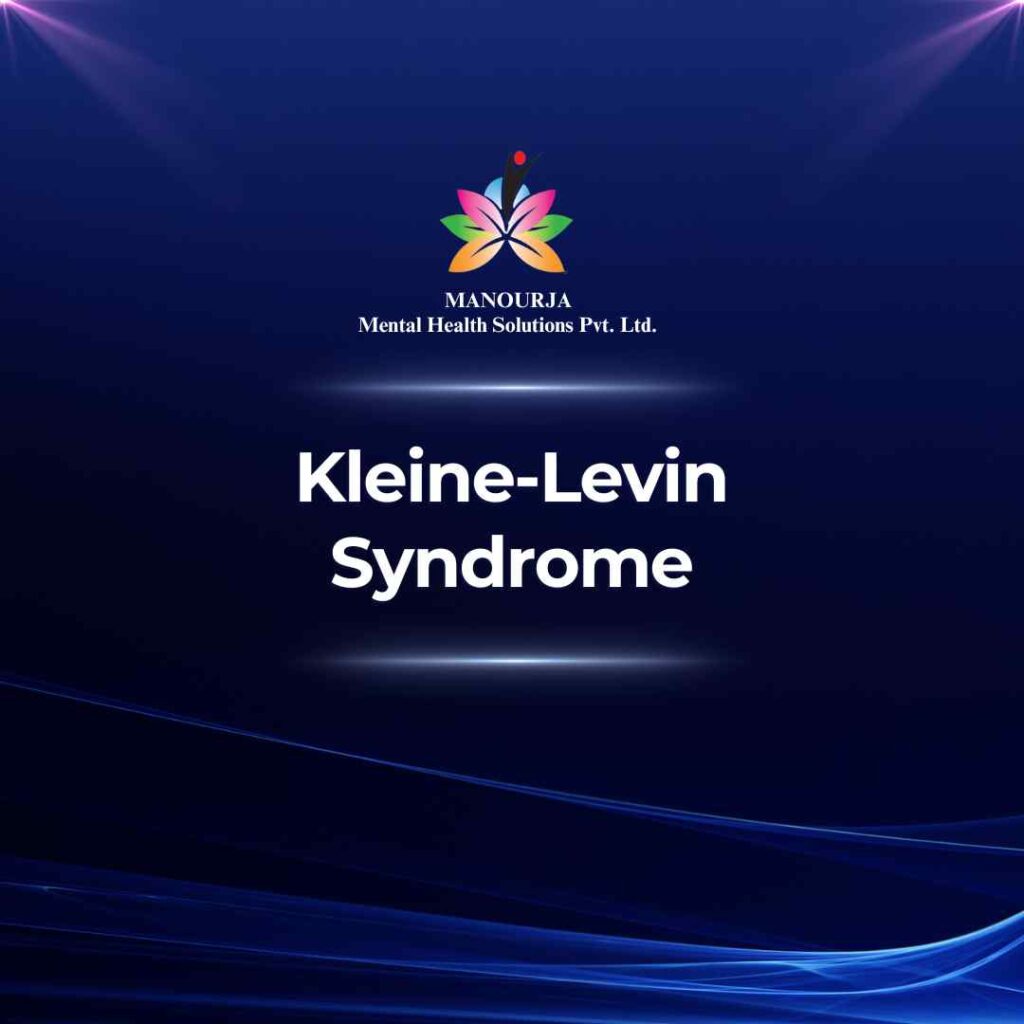Kleine-Levin syndrome

Kleine-Levin Syndrome (KLS), also known as “sleeping beauty syndrome,” is a rare and complex neurological disorder characterized by recurring periods of excessive sleep (hypersomnia) along with cognitive and behavioral changes. While KLS is most common in adolescent males, it can affect both sexes and various age groups.
Symptoms of Kleine-Levin Syndrome
- Recurrent Hypersomnia: Individuals with KLS experience episodes of excessive sleepiness where they may sleep for up to 20 hours a day. These episodes are typically recurrent and can last for days, weeks, or even longer.
- Cognitive Impairment: During episodes, affected individuals may exhibit confusion, disorientation, a complete lack of energy, and seem “spacey” or out of touch with reality.
- Altered Behavior: People with KLS may also display behaviors that are out of character; this can include irritability, childishness, bizarre behavior, or uninhibited sex drive.
- Eating Disturbances: There is often an increase in appetite, with some individuals exhibiting compulsive eating behaviors.
- Mood Changes: Depression, feelings of unreality, and apathy can also occur during episodes.
Forms of Kleine-Levin Syndrome
KLS does not have distinct forms but is recognized by the cyclical nature of its episodes. Between these episodes, individuals return to their normal state, although some might experience lingering mood disturbances or mild cognitive changes even when they are not in an episode.
Treatment of Kleine-Levin Syndrome
There is no cure for KLS, and treatment primarily focuses on managing symptoms. Here are some common approaches:
- Stimulants: Medications such as modafinil are used to combat excessive daytime sleepiness and help maintain wakefulness.
- Mood Stabilizers and Antidepressants: These can help regulate mood swings and depressive symptoms associated with KLS.
- Antipsychotics: In some cases, when severe behavioral disturbances are present, antipsychotic medications may be prescribed.
- Supportive Care: Education and psychological support for patients and their families are essential. It is important for caregivers and educational institutions to understand the nature of the disorder to provide adequate support and accommodations.
- Lifestyle Adjustments: Maintaining a regular sleep schedule outside of episodes may benefit some individuals. Strategies for managing stress and maintaining a healthy lifestyle can also be helpful.
- Monitoring and Adaptation: Due to the episodic nature of KLS, treatment approaches may need to be adjusted over time based on the frequency and severity of episodes.
KLS is typically a long-term condition with episodes that decrease in frequency and intensity over the age of 30. Episodes can be disruptive to education, employment, and personal relationships. Ongoing support from healthcare providers, therapists, family, and friends is crucial in managing the disorder effectively.
At MANOURJA, we believe in the transformative power of counseling. Our experienced therapists offer a safe and supportive space where you can explore your thoughts, emotions, and challenges. Through personalized counselling sessions, we’ll work together to develop coping strategies, build resilience, and achieve lasting positive change. Discover the path to a healthier, happier you with MANOURJA counselling services.
MANOURJA Rehabilitation Services
At MANOURJA, we’re dedicated to helping you in rebuild your life, after difficult times. Our rehabilitation services focus on understanding what you need to move forward, whether you’re recovering from addiction, trauma, or any psychological – social challenges. We create personalized plans, that are all about helping you, regain your strength and find hope again. With a caring team by your side, you’ll have the support to make real progress and take steps toward a brighter, healthier future.
